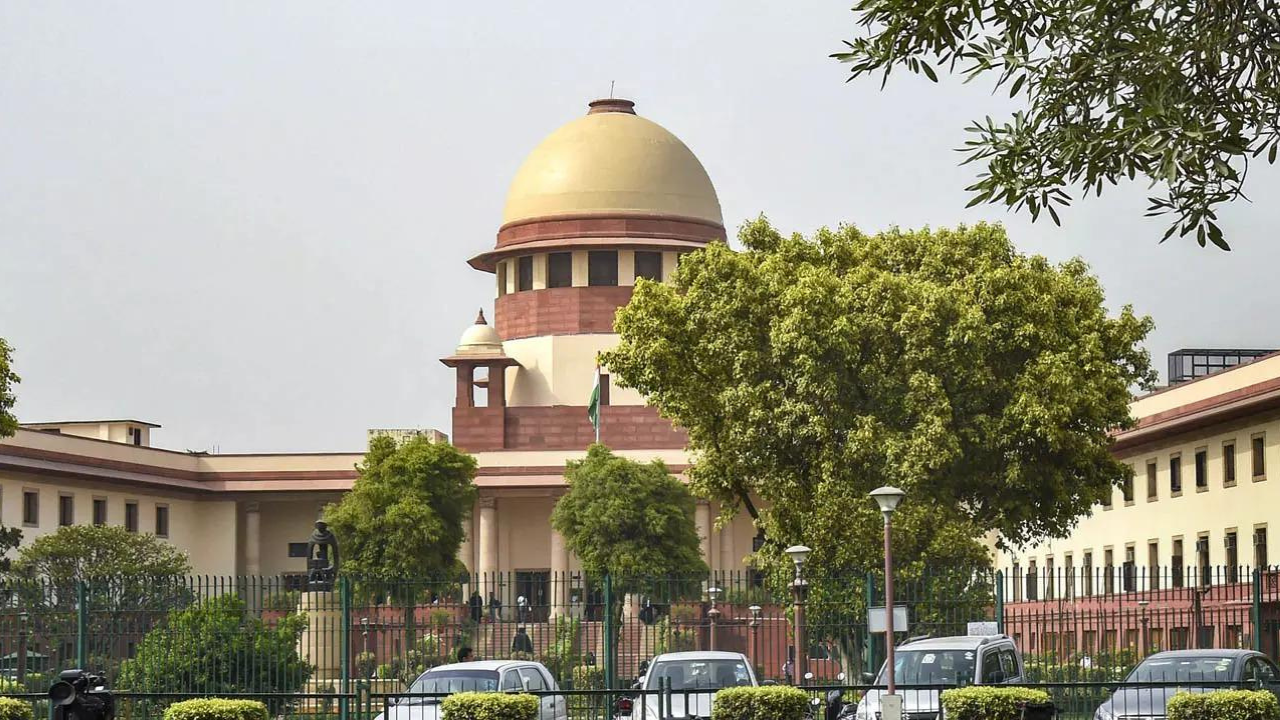NEW DELHI: The Supreme Court on Wednesday directed the Union home ministry to prepare a comprehensive manual to guide the police on how to brief the media on cases being probed by it and also to prevent media trial, which “leads to deflection from the course of justice”.
A bench of CJI D Y Chandrachud and Justices P S Narasimha and Manoj Misra said there is a need for an SOP for media briefing as the guidelines were framed 13 years ago and there has been an upsurge in reporting on criminal offences in print, electronic & social media.
Media trials lead to deflection from the course of justice: SC
The age, gender of accused and nature of crime will weigh on the nature of disclosure to be made…media trial leads to deflection from the course of justice. Bearing in mind these aspects we are of the view that the home ministry prepares a comprehensive manual on media briefings by police personnel,” said the court, emphasising the need to maintain a delicate balance between the media’s fundamental right to free speech and expression, the right of the accused to fair investigation, and the privacy of the victim.
“At one level the accused whose conduct is under investigation is entitled to a fair and unbiased investigation by the police. At the stage of trial, every accused is entitled to assumption of innocence and hence media reportage in a manner which implicates the culpability of a person who is under investigation is liable to seriously impinge upon the reputation and personal dignity of the individual under investigation,” the bench said.
It further said: “There can be no denying the fact that disclosure of official version of the investigation would ensure against speculation on crime reporting. Thus, there is a need to have a uniform policy which can be adopted for notifying nodal officers who would be available to share the stage of investigation. The guidelines must ensure that disclosure does not result in a media trial so as to allow prejudging of the accused. Media trials are liable to result in deflection of cause of justice by impacting upon the evidence which should be adduced and its assessment by adjudicating authorities.”
The bench said, “All DGPs, in a month, should communicate to ministry of home affairs, their suggestions for guidelines…National Human Rights Commission’s suggestions may also be taken.”
Senior advocate Gopal Sankaranarayanan said while the press cannot be restrained from reporting, the sources of information, which are often government entities, can be regulated. He cited the 2008 Aarushi Talwar murder case where multiple police officials gave different versions of the sensational crime to media.
The top court was hearing a petition about the modalities followed by the police while briefing the media about criminal cases under investigation.
A bench of CJI D Y Chandrachud and Justices P S Narasimha and Manoj Misra said there is a need for an SOP for media briefing as the guidelines were framed 13 years ago and there has been an upsurge in reporting on criminal offences in print, electronic & social media.
Media trials lead to deflection from the course of justice: SC
The age, gender of accused and nature of crime will weigh on the nature of disclosure to be made…media trial leads to deflection from the course of justice. Bearing in mind these aspects we are of the view that the home ministry prepares a comprehensive manual on media briefings by police personnel,” said the court, emphasising the need to maintain a delicate balance between the media’s fundamental right to free speech and expression, the right of the accused to fair investigation, and the privacy of the victim.
“At one level the accused whose conduct is under investigation is entitled to a fair and unbiased investigation by the police. At the stage of trial, every accused is entitled to assumption of innocence and hence media reportage in a manner which implicates the culpability of a person who is under investigation is liable to seriously impinge upon the reputation and personal dignity of the individual under investigation,” the bench said.
It further said: “There can be no denying the fact that disclosure of official version of the investigation would ensure against speculation on crime reporting. Thus, there is a need to have a uniform policy which can be adopted for notifying nodal officers who would be available to share the stage of investigation. The guidelines must ensure that disclosure does not result in a media trial so as to allow prejudging of the accused. Media trials are liable to result in deflection of cause of justice by impacting upon the evidence which should be adduced and its assessment by adjudicating authorities.”
The bench said, “All DGPs, in a month, should communicate to ministry of home affairs, their suggestions for guidelines…National Human Rights Commission’s suggestions may also be taken.”
Senior advocate Gopal Sankaranarayanan said while the press cannot be restrained from reporting, the sources of information, which are often government entities, can be regulated. He cited the 2008 Aarushi Talwar murder case where multiple police officials gave different versions of the sensational crime to media.
The top court was hearing a petition about the modalities followed by the police while briefing the media about criminal cases under investigation.
